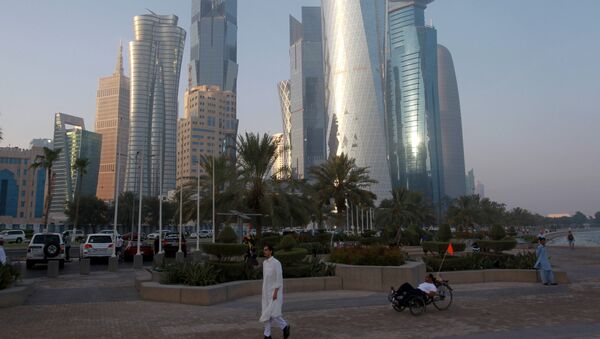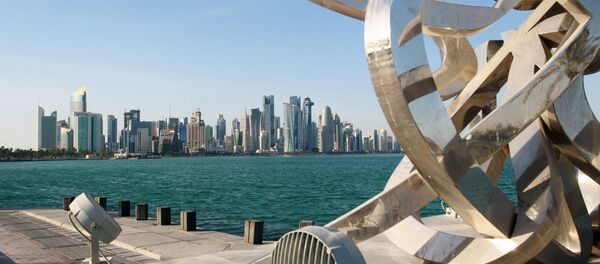An expert on the Persian Gulf at the Arab Research Center in Egypt, Ahmed Talaat, told Sputnik that "the EU has now expressed its willingness to support the negotiation processes related to the crisis around Qatar and help find a solution.”
He also said that the Europeans are ready, together with the mediators to resolve the Qatari crisis, in order to conduct a joint struggle against terrorism.
“It is necessary to use all possible diplomatic and political means to exert pressure on the countries that imposed the blockade on Qatar. We need to sit all the participants at the negotiating table. The future of the Arab region and the entire Middle East depends on this,” Talaat said.
He added that the further aggravation of the situation threatens the war between Saudi Arabia and Iran, and the military intervention of Turkey in the region can further provoke tension in some countries.
Qatari Ambassador to Russia Fahad Mohammed Attiyah stated that Doha is able to withstand the ongoing blockade, but it is interested in sorting out the crisis with the four boycotting Arab states.
"That's the whole point — to come around and to have a discussion, transparent discussion on any outstanding issues, any grievances that one has. But what he [the Qatari emir] stated equally yesterday was [that] any such discussion should not come at the expense of our nation's sovereignty and should not come in the form of dictation," Attiyah said.
He further said that Qatar has the capacity to continue under the current circumstances until the four blockading countries start to abide by the international conventions and norms.
Saudi Arabia, the UAE, Bahrain and Egypt broke off diplomatic relations with Doha in the beginning of June over Qatar's alleged support of terrorism and interference in other states' affairs. Several other countries then joined the boycott.
The demands state that Qatar should scale back relations with Iran, expel Turkish troops, stop financing terrorist organizations and fulfill several other requirements within 10 days. Qatar rejected the demands, saying they were unreasonable.




